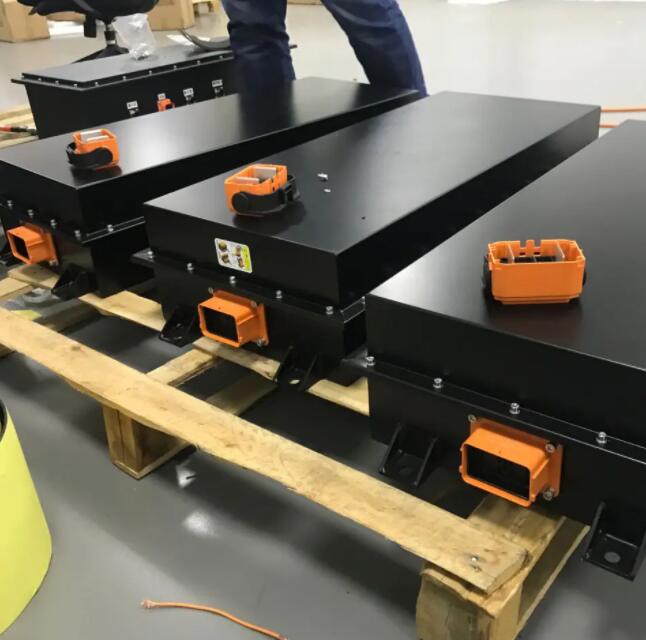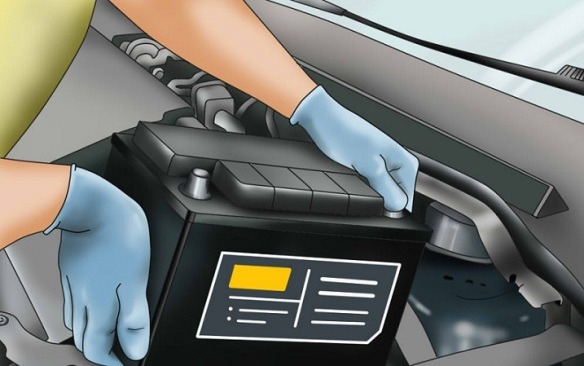electric vehicles Lithium battery suppliers
electric vehicles Lithium battery
Electric vehicles (EVs) typically use lithium-ion batteries as their primary source of energy storage. Lithium-ion batteries are a type of rechargeable battery that have become the preferred choice for EVs due to their high energy density, long lifespan, and relatively lightweight nature compared to other battery technologies.
Here are some key points about lithium batteries in electric vehicles:
Composition: Lithium-ion batteries used in EVs consist of multiple cells, each containing a positive electrode (cathode), negative electrode (anode), and an electrolyte solution. The cathode typically contains lithium compounds, such as lithium cobalt oxide (LiCoO2), lithium iron phosphate (LiFePO4), or lithium nickel manganese cobalt oxide (LiNiMnCoO2). The anode is usually made of graphite.
Energy Density: Lithium-ion batteries have a high energy density, meaning they can store a significant amount of energy in a relatively small and lightweight package. This allows electric vehicles to have longer driving ranges and higher performance capabilities.
Charging and Discharging: Lithium-ion batteries can be charged and discharged efficiently, making them suitable for electric vehicles. They can store energy from the electric grid during charging and deliver it to power the vehicle’s electric motor during discharging.
Range and Performance: The energy density of lithium-ion batteries enables EVs to achieve longer driving ranges compared to other battery technologies. The performance of EVs, such as acceleration and top speed, is also influenced by the power output and efficiency of the battery.
Lifespan: The lifespan of lithium-ion batteries is typically measured in charge cycles, which refers to the number of times a battery can be charged and discharged before its capacity starts to degrade significantly. The lifespan can vary depending on factors such as battery chemistry, usage patterns, temperature conditions, and maintenance. Manufacturers aim to develop batteries with longer lifespans to meet the demands of EV owners.
Safety Considerations: While lithium-ion batteries are generally safe, there have been rare instances of thermal runaway or battery fires. Battery management systems in EVs monitor and control factors like temperature, voltage, and current to ensure safe operation and prevent overcharging or overheating.
Recycling and Sustainability: The recycling of lithium-ion batteries is important to recover valuable materials and reduce environmental impact. Battery manufacturers and researchers are continuously working on improving recycling processes to maximize resource recovery. Additionally, efforts are being made to develop sustainable and environmentally friendly methods for battery production.

Why Choose Lithium Battery For electric vehicles?
High Energy Density
Lithium-ion batteries have a high energy density, which means they can store a large amount of energy in a relatively small and lightweight package. This allows EVs to have longer driving ranges and higher performance capabilities.
Lightweight
Lithium-ion batteries are lightweight compared to other battery technologies, such as lead-acid batteries. This reduces the overall weight of the vehicle, improving its energy efficiency and handling.
Fast Charging
Lithium-ion batteries can be charged at a faster rate compared to other battery technologies. This means EVs can be recharged more quickly, providing greater convenience to drivers.
Efficiency
Lithium-ion batteries have a high charge and discharge efficiency, meaning they can convert a large percentage of stored energy into actual power for the electric motor. This translates to better overall energy efficiency and longer driving ranges.
Longer Lifespan
Lithium-ion batteries generally have a longer lifespan compared to other types of batteries used in EVs. They can withstand a higher number of charge cycles before their capacity starts to degrade significantly. This results in reduced maintenance and replacement costs for EV owners.
Environmental Impact
Compared to internal combustion engine vehicles, EVs powered by lithium-ion batteries produce zero tailpipe emissions, contributing to improved air quality and reduced greenhouse gas emissions. Furthermore, lithium-ion batteries can be recycled, allowing for the recovery of valuable materials and reducing environmental impact.
Technological Advancements
Lithium-ion battery technology has been extensively researched and developed over the years, leading to continuous improvements in performance, safety, and cost. Ongoing advancements and investments in lithium-ion batteries for EVs contribute to the overall growth and development of the electric vehicle industry.
While there are other types of batteries available for electric vehicles, such as nickel-metal hydride (NiMH) batteries, lithium-ion batteries currently offer the best combination of energy density, weight, charging speed, efficiency, and overall performance. As a result, they have become the dominant choice for powering electric vehicles and are expected to continue playing a significant role in the future of sustainable transportation.

-
 Lithium Iron Phosphate Battery Pack, also known as LiFePO4 battery pack, is a type of rechargeable battery that has gained popularity in recent years. It is a type of lithium-ion battery that uses iron phosphate (LiFePO4) as the cathode material. Compared to other types of lithium-ion batteries, LiFePO4 batteries offer several advantages, which make them suitable for a wide range...続きを読む
Lithium Iron Phosphate Battery Pack, also known as LiFePO4 battery pack, is a type of rechargeable battery that has gained popularity in recent years. It is a type of lithium-ion battery that uses iron phosphate (LiFePO4) as the cathode material. Compared to other types of lithium-ion batteries, LiFePO4 batteries offer several advantages, which make them suitable for a wide range...続きを読む -
 Power Your Adventures with a High-Capacity 12V LiFePO4 Battery - 100AhAre you tired of constantly worrying about running out of power during your outdoor adventures? Look no further than the high-capacity 12V LiFePO4 battery with 100Ah capacity. This battery is the perfect solution for powering your electronics and appliances during your outdoor adventures.One of the key benefits of the LiFePO4...続きを読む
Power Your Adventures with a High-Capacity 12V LiFePO4 Battery - 100AhAre you tired of constantly worrying about running out of power during your outdoor adventures? Look no further than the high-capacity 12V LiFePO4 battery with 100Ah capacity. This battery is the perfect solution for powering your electronics and appliances during your outdoor adventures.One of the key benefits of the LiFePO4...続きを読む -
 In today's fast-paced world, reliable and long-lasting power sources are a necessity. Whether it's for our smartphones, laptops, or even vehicles, we rely heavily on batteries to keep us connected and on the move. One such battery that has gained popularity in recent years is the 100Ah lithium battery, specifically the Lithium Iron Phosphate (LiFePO4) variant. The 100Ah LiFePO4...続きを読む
In today's fast-paced world, reliable and long-lasting power sources are a necessity. Whether it's for our smartphones, laptops, or even vehicles, we rely heavily on batteries to keep us connected and on the move. One such battery that has gained popularity in recent years is the 100Ah lithium battery, specifically the Lithium Iron Phosphate (LiFePO4) variant. The 100Ah LiFePO4...続きを読む -
 Introduction In recent years, there has been a growing trend towards sustainable and clean energy sources as the world strives to reduce its dependence on fossil fuels. The increasing demand for electric vehicles, renewable energy storage, and uninterrupted power supply has led to a surge in the need for industrial batteries. These batteries play a crucial role in powering...続きを読む
Introduction In recent years, there has been a growing trend towards sustainable and clean energy sources as the world strives to reduce its dependence on fossil fuels. The increasing demand for electric vehicles, renewable energy storage, and uninterrupted power supply has led to a surge in the need for industrial batteries. These batteries play a crucial role in powering...続きを読む -
 Introduction In today's fast-paced world, communication plays a vital role in connecting people and driving economic growth. However, there are still many areas around the globe that lack robust communication infrastructure, making it difficult for individuals and businesses to stay connected. To address this issue, advancements in technology have led to the development of lithium battery-powered base stations. These...続きを読む
Introduction In today's fast-paced world, communication plays a vital role in connecting people and driving economic growth. However, there are still many areas around the globe that lack robust communication infrastructure, making it difficult for individuals and businesses to stay connected. To address this issue, advancements in technology have led to the development of lithium battery-powered base stations. These...続きを読む -
 Introduction In recent years, the popularity of lithium starter batteries has increased significantly due to their numerous advantages over traditional lead-acid batteries. Lithium starter batteries are lightweight, compact, and have a higher energy density, making them the ideal choice for high-performance vehicles. In this article, we will discuss the advantages of a lithium starter battery. Advantages of a...続きを読む
Introduction In recent years, the popularity of lithium starter batteries has increased significantly due to their numerous advantages over traditional lead-acid batteries. Lithium starter batteries are lightweight, compact, and have a higher energy density, making them the ideal choice for high-performance vehicles. In this article, we will discuss the advantages of a lithium starter battery. Advantages of a...続きを読む -
 Introduction In recent years, the demand for high-performance and long-lasting energy solutions has been increasing rapidly. As a result, lithium iron phosphate (LiFePO4) 48V batteries have emerged as a popular choice in various industries, including renewable energy, electric vehicles, and off-grid power systems. This article aims to explore the features and benefits of LiFePO4 48V batteries, highlighting their high...続きを読む
Introduction In recent years, the demand for high-performance and long-lasting energy solutions has been increasing rapidly. As a result, lithium iron phosphate (LiFePO4) 48V batteries have emerged as a popular choice in various industries, including renewable energy, electric vehicles, and off-grid power systems. This article aims to explore the features and benefits of LiFePO4 48V batteries, highlighting their high...続きを読む

